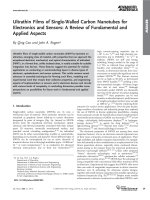- Trang chủ >>
- Khoa Học Tự Nhiên >>
- Vật lý
greed lust and gender a history of economic ideas jan 2010
Bạn đang xem bản rút gọn của tài liệu. Xem và tải ngay bản đầy đủ của tài liệu tại đây (1.55 MB, 414 trang )
GREED,LUST &GENDER
This page intentionally left blank
GREED,LUST
&GENDER
a history of economic ideas
nancy folbre
1
3
Great Clarendon Street, Oxford ox2 6dp
Oxford University Press is a department of the University of Oxford.
It furthers the University’s objective of excellence in research, scholarship,
and education by publishing worldwide in
Oxford New York
Auckland Cape Town Dar es Salaam Hong Kong Karachi
Kuala Lumpur Madrid Melbourne Mexico City Nairobi
New Delhi Shanghai Taipei Toronto
With offices in
Argentina Austria Brazil Chile Czech Republic France Greece
Guatemala Hungary Italy Japan Poland Portugal Singapore
South Korea Switzerland Thailand Turkey Ukraine Vietnam
Oxford is a registered trade mark of Oxford University Press
in the UK and in certain other countries
Published in the United States
by Oxford University Press Inc., New York
q Nancy Folbre 2009
The moral rights of the author have been asserted
Database right Oxford University Press (maker)
First published 2009
All rights reserved. No part of this publication may be reproduced,
stored in a retrieval system, or transmitted, in any form or by any means,
without the prior permission in writing of Oxford University Press,
or as expressly permitted by law, or under terms agreed with the appropriate
reprographics rights organization. Enquiries concerning reproduction
outside the scope of the above should be sent to the Rights Department,
Oxford University Press, at the address above
You must not circulate this book in any other binding or cover
and you must impose the same condition on any acquirer
British Library Cataloguing in Publication Data
Data available
Library of Congress Cataloging in Publication Data
Data available
Typeset by SPI Publisher Services, Pondicherry, India
Printed in Great Britain
on acid-free paper by
Clays Ltd., St Ives Plc
ISBN 978 0 19 923842 2
13579108642
To A. M. C. W.,
open minded economist with a smattering of divinity
This page intentionally left blank
ACKNOWLEDGMENTS
The ideas developed here grew, in a topsy turvy way, out of an article
I co authored with Heidi Hartmann, entitled ‘‘The Rhetoric of Self Interest:
Ideology of Gender in Economic Theory,’’ presented at a conference
memorably attended by Robert Coats, Arjo Klamer, Donald McCloskey,
and Robert Solow, and published in the conference volume The Conse
quences of Economic Rhetoric in 1988. I cannot accurately remember or
adequately thank all those who have helped me over the last twenty years,
but offer a brief chronology of gratitude that begins with institutional
thanks.
A generous fellowship from the French American Foundation that sent
me to Paris in 1995 1996 offered me the opportunity to learn more about
French history. Jean Heffer of the E
´
cole des Hautes E
´
tudes en Sciences
Sociales served as a superb host and Linda Koike as logistical problem solver
par excellence. A five year Fellowship from the McArthur Foundation in
1998 gave me the luxury of devoting time to the history of economic ideas.
A position as visiting Adjunct Professor at the Social and Political Theory
Program Research School of Social Sciences at Australian National University
widened my disciplinary horizons. A fellowship at the Russell Sage Foun
dation in 2005 2006 helped me expand my ideas. A Samuel F. Conti
Fellowship from my own institution, the University of Massachusetts
Amherst, facilitated my final revisions.
My friendship with Anthony Waterman, to whom this book is dedicated,
has proved one of the most rewarding aspects of this adventure. Despite
strong disagreement with many of my specific arguments, Anthony consist
ently provided warm, supportive, detailed, and extremely knowledgeable
feedback. His efforts improved my own intellectual capabilities, as well as
the manuscript, in profound ways. Deirdre McCloskey also offered generous
encouragement and assistance animated by her love of bourgeois virtues.
Thank you, friends, for strengthening my faith in the virtues of academic
debate.
The International Association for Feminist Economics (IAFFE) and its
journal, Feminist Economics, created a rich new intellectual space for the
development of my ideas. I greatly appreciate the largely anonymous efforts
of members, officers, editors, and contributors. My close personal and
professional relationships with feminist scholars Paula England and Julie
Nelson informs everything I write. I’m grateful for their direct and indirect
contributions to this final product. Robert Goodin of the Research School of
Social Sciences at Australian National University also gave me invaluable
feedback and encouragement.
I thank Robert Dimand, Evelyn Forget, and Janet Seiz for attending a
meeting (along with Anthony Waterman) to discuss an earlier version of this
manuscript in San Antonio, Texas in 2002. Conversations with Ulla
Grapard and Edith Kuiper as well as their pioneering work in the history
of feminist economics, contributed to the development of my ideas. My friend
and colleague in Economics at the University of Massachusetts, Carol Heim,
gave me the benefit of her broad knowledge of economic history and careful
attention to detail. My colleague in English at this university, Nicholas
Bromell, offered many discerning comments and suggestions. Others who
offered comments and criticisms on specific chapters include Elisabetta
Addis, Gerald Friedman, Susan Himmelweit, and Wally Seccombe.
Over the last two years I have used this manuscript in a writing course on
the History of Economic Thought, asking students for feedback on my
work in return for mine on theirs. I hope we are all better writers as a result.
Thanks to my students in Spring 2007: Dalyah Assil, Scott Babineau, John
Barrington, Rick Bihrle, Alex Brotschi, Whitney Dorin, Charles Forsyth,
Jacob Gordon, Daniel Kelly, Samir Khan, Nathan Kollett, Andrew Mackay,
Mitchell Markowitz, Paul Piquette, Tomer Radbil, Michael Sullivan, and
Nicholas Swaim. Thanks to those in Fall 2007: James Burbidge, Matthew
Donalds, Matthew Greenstein, Sami Korna, Betty Mac, Ali McGuirk, Greg
Michalopoulos, Sean Monroe, Michael Monsegur, Huy Nguyen, Matthew
Radowicz, Mark Rovenskiy, Alexis Santiago, Christina Shuker, Zach
Simmons, Matthew Spurlock, Thien Tran, Alex Weinstein, and Amanda
Wong.
viii acknowledgments
My editor at Oxford University Press, Sarah Caro, always responded
smartly to my questions and concerns and nudged me in the right directions.
The memory of my good friend Helen Smith, superb writer, editor, and
independent intellectual, sustained my efforts. My husband Robert Dworak
indulged many of my sins. Thanks to all.
While every effort was made to contact the copyright holders of material
in this book, there are instances where we have been unable to do so. If the
copyright holders contact the author or publisher we will be pleased to
rectify any omission at the earliest opportunity.
acknowledgments ix
This page intentionally left blank
TABLEOFCONTENTS
Epigraph xvii
Introduction xix
1. The Eye of the Needle 1
Liberation 2
Damnation 4
Patriarchal Feudalism 5
The Growth of Markets 7
Patriarchal Ideology 8
Markets and Mentalite
´
s 11
Regulation 13
2. The Springs of Desire 18
The Commonwealth of Fathers 19
Patriarchy Defended 21
Patriarchy Modified 22
A Supremacy to Themselves 25
(Re)production 27
Sexual Efficiency 29
Contractual Power 30
3. Defining Virtues 35
The Ancient Regime 36
Age and Gender, Love and Sex 38
The Rebellion of the Harem 39
The Climate of Reason 41
Self, Love, God, and Nature 43
Commerce and Virtue 44
Human Nature 45
4. Free Trade but Not Free Love 49
Humanism 50
Selfishness Celebrated 51
Sexual Regulation 54
Love Thyself 55
The Butcher, the Baker, and the Wife 58
The Balance 61
5. The Limits of Affection 67
Sweet Commerce 68
The Fraternal Compromise 70
Slavery and Evil 72
Feminism and Abolition 75
Observers from Abroad 77
Democracy in America 78
6. The Perfectibility of Man 84
Progress? 85
Of Bread and Cake 88
Interests and the Revolution 89
Malevolence Theorized 93
Timid Egoism 95
7. The Greatest Happiness 99
Chivalry versus Calculation 100
The Vindication 101
Godwin’s Enquiry 103
The Greatest Good 105
Gendered Virtues 108
8. Self-love, Triumphant 111
Poor Relief 112
The Essay on Population 113
Against Benevolence 116
xii table of contents
The Improper Arts 117
Malthus and Women 120
Enlightenment Redux 121
9. Production and Reproduction 125
Patriarchal Capitalism 126
The Rise of Individual Occupations 128
The Labor Theory of Value 130
Child Labor and the Poor Laws 132
Fertility and Out of Wedlock Births 134
The Wages of Virtue 135
Family Disruptions 138
10. Whose Wealth? 143
Wealth Demoralized 144
The Limits to Growth 145
Collective Interests 147
The Corn Laws 149
Free Trade 150
Protectionism 152
Selfish Classes 154
11. The Social Family 158
The Social Father 159
The Great Dream 161
Class and Gender 163
Owen’s Economics 164
The Appeal of One Half the Human Race 165
Feminist Socialism 167
Utopian and Scientific 169
12. Equal Opportunities 174
Napoleonic Code 175
Secular Humanism 176
The Sexual Radicals 177
Le Tribune des Femmes 179
The Calculus of Harmony 180
The Sexual Welfare State 182
table of contents xiii
Brook Farm 184
Crazy Attempts 186
13. The Subjection of Women 190
The Partnership 191
The Subjection of Women 195
Political Activism 198
A Fundamental Question 201
14. Declaring Independence 205
Peculiar Institutions 206
Equality and Difference 208
Collective Interests 211
The Economic Significance of Family Work 212
Divorce and Reproductive Rights 214
Balancing Acts 217
15. The Icy Waters 222
Revolutions 223
Scientific Self Interest 225
The Holy Family 226
The Response to Bebel 227
Bebel and Social Democracy 229
The Survival of the Altruistic 230
The Free Development of All 232
16. The Sacred Sphere 235
Domestic Advice 236
The Meaning of Motherhood 238
Neoclassical Altruism 239
Women’s Duties 243
Virtue and Consequences 247
17. The Unproductive Housewife 251
Counting Workers 252
The U.S. and Massachusetts Censuses 253
A Double Bind 256
Home Economics and Household Production 258
xiv tableofcontents
National Income and the Value of Labor Services 260
The Meaning of the Adjectives 263
18. The Nanny State 268
Fear of Fertility Decline 269
The Family Wage 270
The Fabians 271
The Endowment of Motherhood 274
Minimum Wages for Women in the U.S. 276
Birth Control 278
Sleeping Beauty Awakes 279
The Glorious Unfolding 281
Public Support and Reproductive Rights 282
19. Human Capitalism 287
Social Welfare 288
The Opposite Reaction 290
Everyone a Capitalist 293
Capitalizing Humans 295
The Altruistic Family 297
Families, Gender Inequality, and the State 299
The Third Realm 301
20. Beyond Economic Man 305
The Waves 306
Feminist Economics 307
Motivations 308
Markets and Non Markets 310
The Costs of Care 311
Gender Norms 312
Fairness, Reciprocity, and Care 315
Gross National Happiness 316
Rational and Caring People 318
Conclusion 324
Bibliography 329
Index 373
table of contents xv
This page intentionally left blank
EPIGRAPH
Myth
by Muriel Rukeyser
Long afterward, Oedipus, old and blinded, walked the roads. He
smelled a familiar smell. It was the Sphinx. Oedipus said, ‘‘I want to
ask you one question. Why didn’t I recognize my mother?’’ ‘‘You gave
the wrong answer,’’ said the Sphinx. ‘‘But that was what made every
thing possible,’’ said Oedipus. ‘‘No,’’ she said. ‘‘When I asked, What
walks on four legs in the morning, two at noon, and three in the
evening, you answered, Man. You didn’t say anything about woman.’’
‘‘When you say Man,’’ said Oedipus, ‘‘you include women too. Every
one knows that.’’ She said, ‘‘That’s what you think.’’
This page intentionally left blank
INTRODUCTION
The point is, ladies and gentlemen, that greed for lack of a better
word is good. Greed is right. Greed works.
Gordon Gekk o, Wall Street
Fictional characters are not the only ones to argue that greed redeems itself
by motivating economic growth. Over the last three hundred years, our
cultural spokesmen have expressed increased confidence in the pursuit of
economic self interest even when it might lapse into greed. Our fear of lust,
another of the Seven Deadly Sins, also seems to have receded over time. Still,
during periods of war and economic depression, moral anxiety sometimes
intensifies. We worry more about the difficulties of balancing the satisfaction
of our immediate desires, our long term needs, and the needs of others.
Michael Douglas played the ruthless takeover capitalist Gordon Gekko in
Oliver Stone’s 1987 film, Wall Street, with arrogant style.
1
His ‘‘greed is
good’’ speech mirrored the spirit of the decade, echoing the words of
William Safire in a New York Times column the previous year.
2
But the
film, unlike the column, set the capitalist up for a fall. Gekko successfully
uses both money and sex (provided by his ex girlfriend, who has herself been
bought) to corrupt Bud Fox, a young up and coming stockholder. Gekko’s
dishonesty eventually backfires, undermining Bud’s allegiance. With the
support of his irascible but lovable working class father, Bud provides the
evidence and testimony that will send Gekko to jail.
In the second half of 2008, a financial crisis rocked the U.S., and then the
world, resulting in the threat of bankruptcy for banks and insurance
companies deemed too big too fail. The Bush administration and the
Congress enacted a government bailout of unprecedented size and scope,
at a huge cost to taxpayers. Confidence in both the self regulation of the
market and in corporate management suddenly collapsed. The ideological
basis of free market capitalism came into question. As it happens, a Holly
wood remake of Wall Street was already underway. The conservative British
magazine The Economist suggested a rewrite of Gordon Gekko’s famous
speech: ‘‘Greed, provided it is sufficiently regulated, is tolerable.’’
3
The new concerns about economic vice echoed those heard less than a
decade earlier, in the wake of the so called dot com bust of 2001. At that time
the chair of the U.S. Federal Reserve Bank, Alan Greenspan, laid blame on
an ‘‘infectious greed’’ within the business community. ‘‘It is not,’’ he
explained, ‘‘that humans have become any more greedy than in generations
past. It is that the avenues to express greed had grown so enormously.’’
4
Many
great thinkers have worried about the size of those avenues and the speed
with which we travel on them. The pursuit of individual self interest can be a
positive force. Under what circumstances does it become a vice?
Most efforts to answer this question dwell on the vice of most obvious
economic relevance greed. Alan Greenspan has never expressed concern
about infectious lust, though some political figures have met their downfall
from it. Lust, like greed, represents the pursuit of self interest beyond
virtuous bounds. Sexual self interest may seem distinct from economic
self interest, but it can have important economic consequences for gender
inequality, family formation, and population growth. The avenues to
express lust as well as greed seem wider than they once were, especially
for women. Lust is to feminist theory what greed is to economic theory a
marker of contested moral boundaries.
5
Gender, Vice, and Virtue
Feminist theory offers important insights into the discourse of economic and
sexual self interest. It helps explain forms of gender inequality that long
predated capitalist relations of production, and were, in some respects,
weakened by them. Attention to gender inequality reveals a moral double
standard that regulated women’s economic and sexual behavior more force
fully than men’s. Attention to ideologies of inequality based on gender as
xx introduction
well as class and race enriches our understanding of the links between
economic, political, and cultural change.
Some critics of capitalism describe it as a system that displaced more
virtuous and egalitarian societies, Gardens of Eden in which individuals
were free of economic sin.
6
But t he historical record shows that the
individual and collective pursuit of gain shaped the evolution of
human societies long before money was invented or labor paid a
money wage.
7
The patriarchal family based economies that often
emerged in agrarian societies gave males considerable control o ver the
labor of women and children, creating incentives for coercive pronat al
ism.
8
The emergence of individual wage employment gave women and
young adults new opportunities outside the home that gradually weakened
patriarchal power.
Still, the notion that capitalism represented a purely liberating force seems
far fetched. One can agree that capitalists can be virtuous but disagree that
they have ‘‘improved our souls’’.
9
New forms of collective power counter
balanced new opportunities for individual autonomy, and the benefits of
economic growth were unequally distributed. Over the course of capitalist
development women gained ‘‘self ownership’’ but remained subordinate to
men in large part because they continued to specialize in producing some
thing that could not be easily bought and sold the next generation of
citizens and workers.
The net effects of capitalist development depend in part upon its social
context capitalism compared to what? They also depend on political
details like democratic governance, civil rights, and social safety nets. Karl
Marx and Friedrich Engels famously declared capitalism a progressive force
for change up to some point at which it would, they believed, inevitably
collapse. Modern critics are more likely to emphasize adverse effects on
families, communities, and the global ecosystem. In the early twentieth
century, competition with state socialist regimes created pressures for regu
lation and an expanded welfare state. When those regimes collapsed (like the
Soviet Union) or morphed into more capitalist forms (like China) global
competition led to deregulation and efforts to cut back on public spending
that have backfired.
All societies face a problem that is simultaneously moral and economic:
how to balance individual interests against those of family, friends, and
introduction xxi
other beings. Robert Nelson describes the particular challenge of market
societies as follows:
The requisite normative foundation for the market requires a dual
attitude with respect to self interest strong cultural inhibitions
against the expression of self interest (of opportunistic motives) in
many areas of society, but at the same time strong encouragement for
another powerful form of ‘‘opportunism’’, the individual pursuit of
profit within the specific confines of the market.
10
Capitalist societies have typically glorified the pursuit of individual self
interest, especially for men. Yet markets depend on civility, trust, and the
rule of law. The pursuit of short term self interest can lead to long run
losses, especially when individuals can’t coordinate their efforts. Markets
operate within a complex matrix of other crucial institutions, including the
family and the state. Competition among groups requires cooperation
within them: social identities shape individual interests. Perhaps because
they emerged from patriarchal antecedents, capitalist societies have typically
relied on much stricter regulation of women than of men. Restrictions on
women’s freedom to compete have been accompanied by normative encour
agement for women to devote themselves primarily to the care of others.
It is small wonder, then, that conservatives bemoan the decline of the
traditional family and sometimes describe feminism as a threat to western
civilization itself.
11
As women have gradually gained individual rights
comparable to those of men, the relative weights we place on individual
rights and social obligations seem to have shifted. The pursuit of individual
self interest has gained more cultural power. In many affluent countries
around the world today considerable numbers of women as well as men opt
out of parenthood. Our inertial reluctance to address global environmental
problems suggests that we may overly discount the future.
Gender differences have shaped ideologies of self interest, including
concepts of greed and lust. Following many other historians of economic
thought, I define ideology as a set of rationalizations produced by powerful
groups to glorify their own importance and advance their interests.
12
Ido
not believe that such rationalizations are imposed unilaterally from above.
Rather, they represent forms of social regulation that evolve over time,
reflecting conflict and negotiation among groups with varying degrees of
power.
13
Collective interests based on gender are particularly relevant to the
xxii introduction
persistence of a moral double standard for men and women that gradually
proved susceptible to women’s individual and collective efforts to reconfig
ure it.
Intersections between gender, vice, and virtue help to explain the moral
regulation of economic life and, therefore, the process of economic growth
itself. If ideologies are key, so too are the ideas that underlie them. One way
to study these ideas is to ask how other thinkers have confronted them.
The Dimensions of Desire
The first principle of conventional economic theory, which I have taught
introductory students for many years, is that we all benefit if everyone
pursues their own self interest. The next principle is that there are many
exceptions to this rule. Yet this pedagogical sequence usually unfolds with
out much discussion of the distinction between self interest, which most
people today view in positive terms, and selfishness, which still carries
negative connotations.
I first became interested in this issue when I noticed that many economists
have praised men for pursuing their self interest, but criticized women for
being selfish. This apparent inconsistency derives in part from the fact that
women have traditionally been assigned greater responsibility for the care of
family members, particularly children. Selfish women seem to pose a greater
threat to society than selfish men. Tracing the history of anxiety about this
threat, I found that selfishness included two more colorful specific vices:
greed and lust. Both have been traditionally considered less acceptable in
women than in men.
Both vices are characterized by a dangerous intensity. In an early diction
ary of the English language, Samuel Johnson defined the adjective greedy as
‘‘eager, vehemently desirous’’, and the verb lust as ‘‘to desire vehemently’’.
14
He located both vices in the body. Greediness began with food; its synonyms
were ‘‘ravenousness’’, ‘‘voracity’’, and ‘‘hunger’’. Lust included carnal desire.
Today the meaning of greed comes closer to avarice, a desire for money,
with which, of course, food can be purchased. The meaning of lust now
implies animal urge. Both greed and lust are still defined by adjectives such
as ‘‘inordinate’’, ‘‘insatiate’’, ‘‘excessive’’, and ‘‘unrestrained’’.
15
They invoke
moral categories: wanting more than one needs or deserves.
introduction xxiii
However, the effort to define greed or lust in quantitative terms as
wanting ‘‘too much’’ or going ‘‘too far’’ leads us astray. Most people use
these pejorative terms to describe behavior that is either harmful to others or
to one’s own future health and happiness. Making a lot of money every day
does not imply that you are greedy, and having a lot of sex every night does
not imply that you are lustful. What matters is how you treat others along
the way. John Stuart Mill (admittedly one of the heroes of the following
chapters) argued in his classic essay ‘‘On Liberty’’ that individuals should be
allowed to pursue their own interests so long as they do not infringe on the
rights of others to pursue theirs.
Another misleading convention lies in the putative contrast between self
interest and altruism, which are often described as if they represent extreme
ends of a spectrum. But self interest is not the opposite of altruism, because it
can be altruistic. If you love someone else, their interests can become your
own. If you have altruistic preferences, making other people happy can
increase your own happiness. Consider a different picture of the motiv
ational spectrum, with one end representing perfect selfishness or lack of
concern for anyone else and the other perfect selflessness, complete lack of
concern for one’s own welfare. In between lie complex combinations of self
regarding and other regarding preferences the motivational terrain which
most of us inhabit.
Another useful way to unpack the term ‘‘self interest’’ lies in separate
attention to the meaning of the ‘‘self ’’. If we think of the ‘‘self ’’ as an entity
entirely separate from others, literally coinciding with the physical body, and
defined largely in terms of its physical desires for food or rest or sex, then
self interest will seem predominantly selfish. But if we think of the ‘‘self ’’ as
an entity connected to others through ties of affection and obligation, its
boundaries become less clear. Christian theology describes married couples
as ‘‘one flesh’’. Loved ones become a part of us. Under these conditions, to act
in one’s self interest is hardly selfish. On the other hand, one can identify
with a group that pursues collective interests at the expense of others.
Altruism is not necessarily virtuous.
The terminology of neoclassical economics also helps clarify these issues.
When introductory microeconomic textbooks specify that an idealized con
sumer has no ‘‘interdependent preferences’’ what they mean is that he or she is
entirely selfish. Introducing concerns for others in the form of interdependent
xxiv introduction









